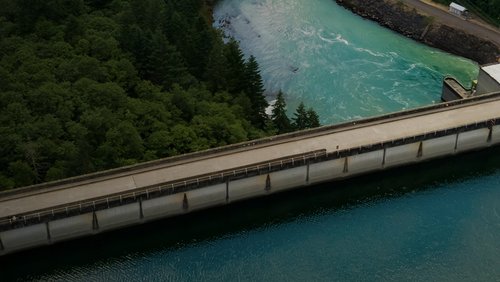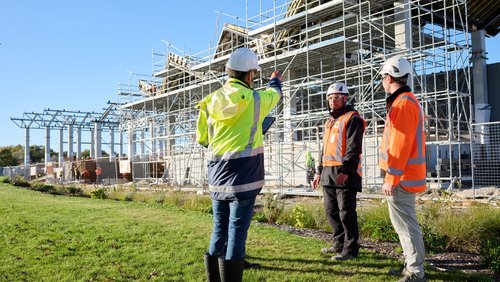1 Aug 2022
Career opportunities for students as heavy vehicle certifiers as industry faces potential shortage.
What is a heavy vehicle certifier?
Heavy vehicle engineering certifiers are authorised by Waka Kotahi NZ Transport Agency to ensure critical heavy vehicle components, such as brakes and chassis, remain safe to use after repair and/or modification. This includes being responsible for inspecting heavy vehicles and producing engineering designs for different components, like towing connections, load anchorages and chassis modifications.
Why is there a need for a programme to support heavy vehicle certifiers?
The industry has operated the same way for many years and the programme focuses on reviewing support for the industry to ensure it is modern and fit for purpose. This includes updating training and development and reviewing processes and opportunities to work differently.
What type of job opportunities are available for heavy vehicle certifiers?
There is currently an extreme shortage of certifying engineers and high demand for vehicle certification, providing plenty of job opportunities well into the future.
What is the earning potential for a heavy vehicle certifier?
Once qualified and authorised by Waka Kotahi, heavy vehicle engineering certifiers generally are charged out at $150-250 per hour. Income will vary depending on whether self-employed or working for a consultancy firm.
What engineering disciplines could work as a heavy vehicle certifier?
Mechanical Engineering is most common discipline within the industry but there is also potential for those with qualifications in other engineering disciplines, especially those that share similar core fundamental subjects.
What is the minimal engineering qualification required to train as a heavy vehicle certifier?
A diploma of engineering (Level 6) is the minimum requirements to join the industry, with an honours degree in Mechanical Engineering being the most common qualification.
What type of additional training is required to be a heavy vehicle certifier?
Applicants are required to pass a regulatory exam for each vehicle component category they want to certify. This generally starts with towing connections and load anchorages, or brakes. Once they’ve passed the exam, they can apply to be appointed a heavy vehicle engineering certifier, becoming fully competent once they’ve completed a period of mentoring with a senior engineering certifier.
How can students who will complete their engineering studies in 2022 or engineers in industry wanting a career change, sign up for the additional training, where will the training be and when will the training start?
Ideally, prospective engineering certifiers will gain work within the industry first, to help get experience working with heavy vehicles. Waka Kotahi runs exams three times per year, and some certification categories (such as brakes) are run externally as demand requires. Waka Kotahi recommends having a chat to an existing heavy vehicle engineer about opportunities – certifiers can be found by either checking the Waka Kotahi certifiers list or the Heavy Vehicle Engineers Group website.
What ongoing training will be required by those who enter the heavy vehicle industry once they have completed their initial training?
Engineering certifiers may choose to study and apply for additional categories, some of which are more complex. This is encouraged by Waka Kotahi. All heavy vehicle certifiers are reviewed regularly by Waka Kotahi to ensure they continue to understand the standards and requirements in place. There is also a focus on continuous improvement.
Who pays for the heavy vehicle certifier training?
Normally, the person wanting to becoming a certifying engineer pays for the training, however in some situations this may be paid for by the employer.
Will heavy vehicle certifiers need to have CPEng?
Currently it’s not a requirement to become a Chartered Professional Engineer, however, this may change over the coming years as new regulatory requirements are developed.
How is Engineering New Zealand supporting the heavy vehicle certifier programme?
Currently, Engineering New Zealand is working in close partnership with the HVE Group, certifiers and engineers working in industry, and Waka Kotahi, to improve the future state of the industry. Engineering New Zealand have designed solutions to support future challenges – and we're currently managing a project to design and develop knowledge assets and training materials for engineers and other certifiers, that will help codify good practice, and make it visible for everyone’s knowledge and benefit. They're also designing a vocational pathway, to help make visible the career path and how to obtain knowledge required to practice in this field.
How does the heavy vehicle certifier programme engineer better lives for New Zealanders?
The programme is critical as certifying engineers are part of the road transport system that keeps New Zealand’s commercial freight industry running, including supermarket delivery vehicles, logging trucks and tankers. Heavy vehicles to transport people, goods and supplies, and are critical for infrastructure and building projects – they're a vital part of New Zealand’s supply chain. You’re unlikely to get an online order delivered to your door, without heavy vehicles. Waka Kotahi, Engineering New Zealand and industry want to secure a thriving future state for heavy vehicle engineers, who're a highly specialised, small work force that enables an entire industry.
Where can students or engineers in industry who are interested in further exploring this opportunity find out more information?
Anyone interested in joining the industry or finding out more can email Heavy vehicle certifiers




